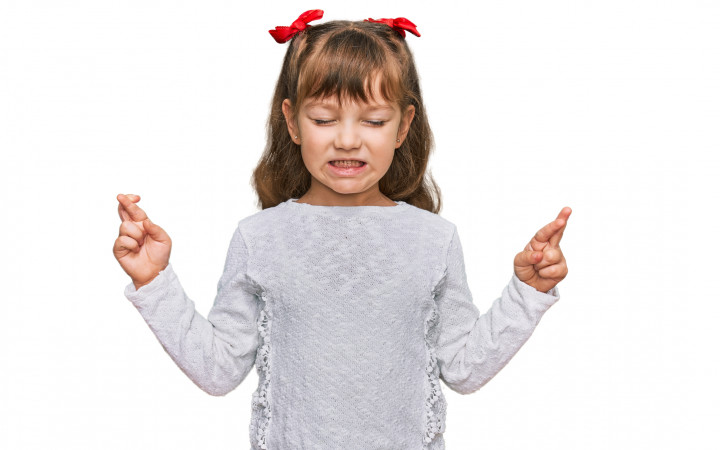Today’s Wonder of the Day was inspired by kelys from AL. kelys Wonders, “what is on friday the 13” Thanks for WONDERing with us, kelys!
It's one more than 12. It's one less than 14. It's the square root of 169. What is it? 13, of course! If the mere mention of 13 makes you uneasy or nervous, you may suffer from triskaidekaphobia (tris´-kuh-dek´-uh-foh´-bee-uh) — fear of the number 13.
But what's the big deal? It's just another number, right? Why do so many people think it's unlucky…especially on Friday the 13th?
Although no one knows for sure when, where or why 13 became associated with bad luck, some think the belief is linked to the early Christians. One commonly-held thought is that there were 13 people present at the Last Supper: Jesus and his 12 Apostles. Many believe Judas Iscariot, the betrayer of Jesus, was the 13th person to join the table that night.
Others believe you can look even farther back into history to the time of the Vikings. Viking legends tell of Loki, the 13th god who intruded on the Banquet of Valhalla, to which only 12 gods were invited. Another god, Baldr, was soon killed by his brother, who used a spear given to him by Loki.
The fear of the number 13 is especially heightened when the 13th day of the month falls on a Friday. Historians believe fear of Friday the 13th (a phobia with its own name: paraskevidekatriaphobia (pair-uh-skev´-vee-day-CAT-tree-uh-fo´-bee-uh)) may stem from the fact that the Knights Templar, an ancient Christian military unit, were arrested by Philip IV of France on Friday, October 13, 1307.
Whatever its origins, fear of the number 13 is common in Western cultures. If you pay close attention, you'll notice that most hotels and tall buildings skip the 13th floor. Many airplanes skip the 13th row when they number their seats. Some cities even avoid having a 13th Street!
A math teacher with triskaidekaphobia might go out of their way to avoid the number 13. For example, they might limit quizzes to only a dozen questions. Or numbered questions on a test might skip from 12 to 14!
Although triskaidekaphobia is technically considered a phobia, experts believe it should instead be classified as a superstition. Since it only arises in certain situations and rarely has any significant impact on one's life, many people believe triskaidekaphobia is more like “magical thinking" than a serious phobia (debilitating fear of something).
A superstition is a belief in supernatural causes. In other words, people who are superstitious about certain things believe that one event causes another, even though there is no physical process that links the two events. Superstitions often revolve around defining certain events as either lucky or unlucky.
Do you believe in any superstitions? Here is a list of common superstitions:
- Walking under a ladder is bad luck.
- Breaking a mirror brings 7 years of bad luck.
- Opening an umbrella indoors brings bad luck.
- If a black cat crosses your path, bad luck will follow.
- If you spill salt, toss it over your left shoulder to bring good luck.
- Knocking twice on wood reverses potential bad luck.
- Crossing your fingers brings good luck.
Have you heard of most of these superstitions? Do you believe in any of them? Why or why not? You'll notice that we included 7 superstitions, since some people consider the number 7 to be a sign of good luck!




